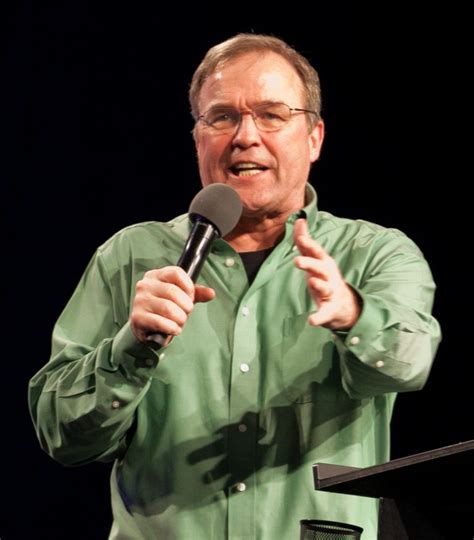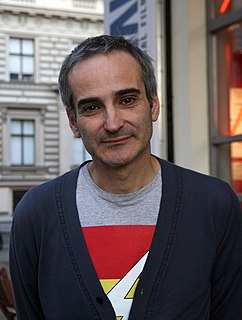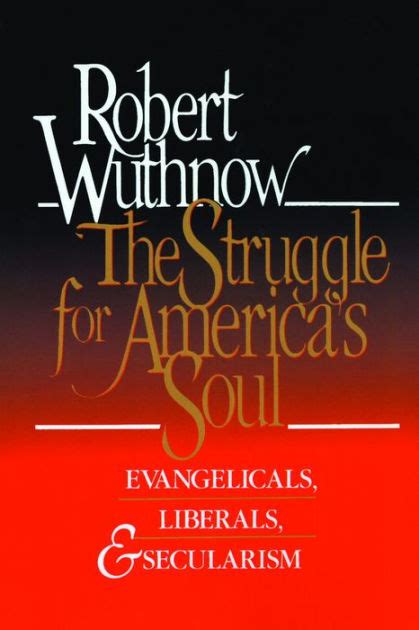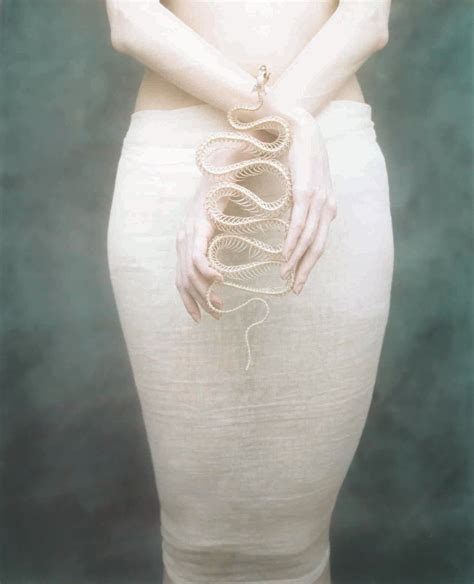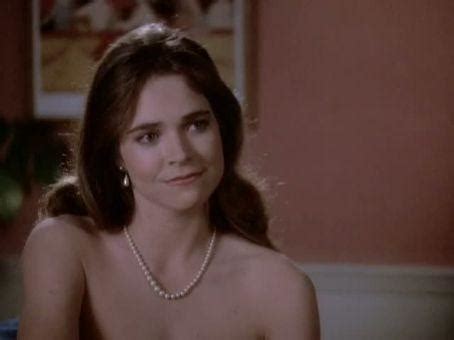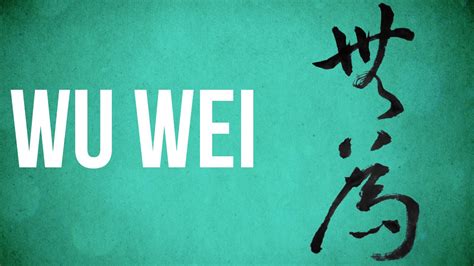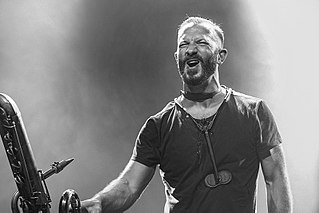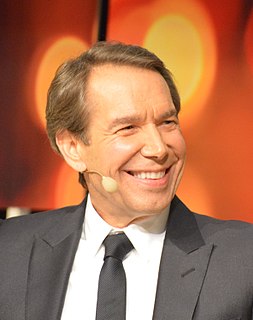Top 207 Transcendence Quotes & Sayings - Page 3
Explore popular Transcendence quotes.
Last updated on December 18, 2024.
I have spent my life watching, not to see beyond the world, merely to see, great mystery, what is plainly before my eyes. I think the concept of transcendence is based on a misreading of creation. With all respect to heaven, the scene of the miracle is here, among us. The eternal as an idea is much less preposterous than time, and this very fact should seize our attention.
The Singularity denotes an event that will take place in the material world, the inevitable next step in the evolutionary process that started with biological evolution and has extended through human-directed technological evolution. however, it is precisely in the world of matter and energy that we encounter transcendence, a principal connotation of what people refer to as spirituality.
The point of the overall meditative path is to have Wakefulness (or Consciousness as Such) transcend and include all state-realms, so it ceases to "black out" or "forget" various changes of state (such as dreaming and deep sleep), and instead recognizes a "constant Consciousness" or ever-present nondual Awareness, the union (and transcendence) of individual finite self and infinite Spirit.
So the Buddha is presenting awakening not as a single mystical experience that may come upon us at some meditation, some private moment of transcendence, but rather as a new engagement with life. He is offering us a relationship to the world that is more sensitized to suffering and the causes of suffering, and he gives rise to the possibility of another kind of culture, another kind of civilization.
To encounter Christ is to touch reality and experience transcendence. He gives us a sense of self-worth or personal significance, because He assures us of God's love for us. He sets us free from guilt because He died for us and from paralyzing fear because He reigns. He gives meaning to marriage and home, work and leisure, personhood and citizenship.
Praying and living deeply, richly and fully have become for me almost indistinguishab le. Prayer is being present, sharing love, opening life to transcendence. It is not necessarily words addressed heavenward. Prayer is entering into the pain or joy of another person. Prayer is what I am doing when I love wastefully, passionately and wondrously and invite others to do so.
When people ask me now about why I make art, I think that's what I'm seeking - a moment of transcendence with a piece. Because otherwise you're just in the hustle, you're trying to pay your bills, to do this and that, and then there's that unique moment, when you're not thinking about the market, or if it's going to sell, and all of that bullshit.
Friedrich Nietzsche predicted that secular people, losing touch with transcendence, would eventually lose a reference point from which to look down and judge themselves. In the end they would lose even the capacity to despise themselves. Thus, because of the 'death of God', they would confuse heaven with happiness, and happiness with health.
It doesn't necessarily matter if I'm onstage or not. I just find the communal experience of a rock concert, or any type of music performance, achieves a kind of transcendence that I associate with spirituality. It's the closest thing to what I think people expect church to be like. Or maybe just what I've always thought church should be. You lose yourself, and at the same time come to the realization or understanding that you're part of something bigger than yourself.
The revelation of His glory includes seeing One so high (transcendence) who went so low (condescension) to bring us so near (redemption) because we are so dear (Bride). The Most High God went so low because of such great desire to partner with us... We are awestruck by His power, overwhelmed by His humility, and made confident by His love.
the seeker who embraces positive theology finds ... that you can have all that stuff in the mall, as well as the beautiful house and car, if only you believe that you can. But ... if you don't have all that you want, if you feel sick, discouraged, or defeated, you have only yourself to blame. Positive theology ratifies and completes a world without beauty, transcendence, or mercy.
Beauty is a key to the mystery and a call to transcendence. It is an invitation to savor life and to dream of the future. That is why the beauty of created things can never fully satisfy. It stirs that hidden nostalgia for God which a lover of beauty like Saint Augustine could express in incomparable terms: 'Late have I loved you, beauty so old and so new: late have I loved you!'.
[Comedies], in the ancient world, were regarded as of a higher rank than tragedy, of a deeper truth, of a more difficult realization, of a sounder structure, and of a revelation more complete. The happy ending of the fairy tale, the myth, and the divine comedy of the soul, is to be read, not as a contradiction, but as a transcendence of the universal tragedy of man. ...Tragedy is the shattering of the forms and of our attachment to the forms...
Robin [Williams] was a world treasure. As we mourn his tragic death, we must remember him for the great waves of laughter that he was able to illicit from us, how his humor and insights - though they came from a place of pain and uncertainty - connected us and reminded us of how flawed and fragile...how human we are. How we are capable of moments of inspired transcendence and others of unspeakable despair.
Specialness as a primary mode of death transcendence takes a number of other maladaptive forms. The drive for power is not uncommonly motivated by this dynamic. One's own fear and sense of limitation is avoided by enlarging oneself and one's sphere of control. There is some evidence, for example, that those who enter the death-related professions (soldiers, doctors, priests, and morticians) may in part be motivated by a need to obtain control over death anxiety.
Our civilization represses not only "the instincts", not only sexuality, but any form of transcendence. Among one-dimensional men, it is not surprising that someone with an insistent experience of other dimensions, that he cannot entirely deny or forget, will run the risk either of being destroyed by the others, or of betraying what he knows.
In a society where rationality has ruled so long, the church frequently fails to see that in forsaking the weekly pursuit of the transcendent, we have given up the only ground that was uniquely ours in this world. In attempting to make the church something that can attract and add value to secular mind-sets, we have turned our backs on our one true proposition - transcendence.
I believe that telling our stories, first to ourselves and then to one another and the world, is a revolutionary act. It is an act that can be met with hostility, exclusion, and violence. It can also lead to love, understanding, transcendence, and community. I hope that my being real with you will help empower you to step into who you are and encourage you to share yourself with those around you.
Monotheism at Sinai, primitive Christianity, messianic socialism: these are the three supreme moments in which Western culture is presented with what Ibsen termed "the claims of the ideal." These are the three stages, profoundly interrelated, through which Western consciousness is forced to experience the blackmail of transcendence.
There is a yearning that is as spiritual as it is sensual. Even when it degenerates into addiction, there is something salvageable from the original impulse that can only be described as sacred. Something in the person (dare we call it a soul?) wants to be free, and it seeks its freedom any way it can. ... There is a drive for transcendence that is implicit in even the most sensual of desires.
Materialism is not fundamentally an economic problem, but a cultural one... a spiritual issue. It runs to the depths of our souls, and, for this reason, needs to be understood less in terms of budgets or fiscal cycles and more in terms of where we locate the sacred, of where we search for meaning and transcendence, and of how we think about justice, equality, and the future of our world.
The notion of "humanity" as a form of transcendence derives, I think, from the conviction that intellectuality possesses an absolute power, from the demand that our best behavior depends on our ability to think abstractly, in terms of a universal rule, about something called humanity, that we need to understand humanity abstractly so that we can act responsibly towards those who represent it.
I have managed not to finish certain books. With barely a twinge of conscience, I hurl down what bores me or doesn't give what I crave: ecstasy, transcendence, a thrill of mysterious connection. For, more than anything else, readers are thrill-seekers, though I don't read thrillers, not the kind sold under that label, anyway. They don't thrill; only language thrills.
The elements that create glamour are not specific styles - bias-cut gowns or lacquered furniture - but more general qualities: grace, mystery, transcendence. To the right audience, Halle Berry is more glamorous commanding the elements as Storm in the X-Men movies than she is walking the red carpet in a designer gown.
Perhaps basketball and poetry have just a few things in common, but the most important is the possibility of transcendence. The opposite is labor. In writing, every writer knows when he or she is laboring to achieve an effect. You want to get from here to there, but find yourself willing it, forcing it. The equivalent in basketball is aiming your shot, a kind of strained and usually ineffective purposefulness. What you want is to be in some kind of flow, each next moment a discovery.
Every day we have a choice. We can take the easier road, the more cynical road, which is a road sometimes based on a dream of a past that never was, fear of each other, distancing and blame, or we can take the much more difficult path, the road of transformation, transcendence, compassion, and love, but also accountability and justice.
Institutionalized desublimation thus appears to be an aspect of the "conquest of transcendence" achieved by the one-dimensional society. Just as this society tends to reduce, and even absorb opposition (the qualitative difference!) in the realm of politics and higher culture, so it does in the instinctual sphere. The result is the atrophy of the mental organs for grasping the contradictions and the alternatives and, in the one remaining dimension of technological rationality, the Happy Consciousness comes to prevail.
No one ever told us we had to study our lives,make of our lives a study, as if learning natural historyor music, that we should beginwith the simple exercises firstand slowly go on tryingthe hard ones, practicing till strengthand accuracy became one with the daringto leap into transcendence, take the chance of breaking down in the wild arpeggioor faulting the full sentence of the fugue.
My whole artistic life has been devoted to battling myself and my ability to externalize my deepest emotions. As I have gotten older, the work has become more direct, perhaps reflecting the fact that for the first time in my life I feel really free. I have been fascinated with wings all my life. I have had an obsession with transcendence, the need to push forward and metaphorically fly.
Awe is an intuition for the dignity of all things, a realization that things not only are what they are but also stand, however remotely, for something supreme. Awe is a sense for transcendence, for the reference everywhere to mystery beyond all things. It enables us to perceive in the world intimations of the divine. ... to sense the ultimate in the common and the simple: to feel in the rush of the passing the stillness of the eternal. What we cannot comprehend by analysis, we become aware of in awe.
Rather than protecting music as a sublimely meaningless activity that has managed to escape social signification, I insist on treating it as a medium that participates in social formation by influencing the ways we perceive our feelings, our bodies, our desires, our very subjectivities - even if it does so surreptitiously, without most of us knowning how. It is too important a cultural force to be shrouded by mystified notions of Romantic transcendence.
The father's life is surrounded by mysterious prestige: the hours he spends in the home, the room where he works, the objects around him, his occupations, his habits, have a sacred character. It is he who feeds the family, is the one in charge and the head. Usually he works outside the home, and it is through him that the household communicates with the rest of the world: he is the embodiment of this adventurous, immense, difficult, and marvelous world; he is transcendence, he is God.
Classical music is at odds with contemporary culture precisely because of its insistence on the tension between the bodily and intellectual, the material and the spiritual, the thinglike and its transcendence in thought. A culture that is merely sensuous and that denies the activity of the mind within sensuous materials risks becoming pornographic.
Transcendence or detachment, leaving the body, pure love, lack of jealousy-that's the vision we are given in our culture, generally, when we think of the highest thing. . . . Another way to look at it is that the aim of the person is not to be detached, but to be more attached-to be attached to working; to be attached to making chairs or something that helps everyone; to be attached to beauty; to be attached to music.
Of course, both [Oscar] Wilde & [Vladimir] Nabokov believe in many things, and these things emerge in their writing clearly - for Wilde, the folly of humankind and the (romantic) grandeur of the heroic, lone individual (not unlike Wilde himself); for Nabokov, the possibility of a kind of transcendence through a great, prevailing, superior sort of love (especially in Ada, the most self-congratulatory of novels.)
The happy ending of the fairy tale, the myth, and the divine comedy of the soul, is to be read, not as a contradiction, but as a transcendence of the universal tragedy of man. The objective world remains what it was, but, because of a shift of emphasis within the subject, is beheld as though transformed. Where formerly life and death contended, now enduring being is made manifest-as indifferent to the accidents of time as water boiling in a pot is to the destiny of a bubble, or as the cosmos to the appearance and disappearance of a galaxy of stars.
I feel like when we talk about post-apocalyptic themes that's what we're really talking about. We're always returning to this sense of being alone in a strange new place where all is bleak and all is lost. And it is this sense of isolation that permeates the whole album. I wanted to go into the balance between fear and transcendence.
The art of dharma practice requires commitment, technical accomplishment, and imagination. As with all arts, we will fail to realize its full potential if any of these three are lacking. The raw material of dharma practice is ourself and our world, which are to be understood and transformed according to the vision and values of the dharma itself. This is not a process of self- or world- transcendence, but one of self- and world- creation.
Only to the extent that someone is living out this self transcendence of human existence, is he truly human or does he become his true self. He becomes so, not by concerning himself with his self's actualization, but by forgetting himself and giving himself, overlooking himself and focusing outward.
Intelligent, heartfelt stories that tell a whole new set of truths about growing up American. Julie Orringer writes with virtuosity and depth about the fears, cruelties, and humiliations of childhood, but then does that rarest, and more difficult, thing: writes equally beautifully about the moments of victory and transcendence.
I have never been able to understand the complaint that a story is "depressing" because of its subject matter. What depresses me are stories that don't seem to know these things go on, or hide them in resolute chipperness; "witty stories," in which every problem is the occasion for a joke; "upbeat" stories that flog you with transcendence. Please. We're grown ups now.
My effort here is to create bliss, not happiness. Happiness is worthless; it depends on unhappiness. Bliss is transcendence: one moves beyond the duality of being happy and unhappy. One watches both; happiness comes, one watches and does not become identified with it. One does not say, 'I am happy. Peace, it is wonderful.' One simply watches, one says, 'Yes, a white cloud passing.'
I was interested in transcendence from a very early age. I was interested in what was over there, what was behind life. So when I had my first communion I was very disappointed. I had expected something amazing and surprising and spiritual. Instead all I got was a bicycle. That wasn't what I was after at all.
Math . . . music .. . starry nights . . . These are secular ways of achieving transcendence, of feeling lifted into a grand perspective. It's a sense of being awed by existence that almost obliterates the self. Religious people think of it as an essentially religious experience but it's not. It's an essentially human experience.
This human need for mysticism – surrender to an unknown truth, union – stands at the helm of all romantic feeling. It is, in essence, the same intimacy known in a mother’s arms; in those who are deprived of the experience, the need freezes and, distorted, it can rent a life. All addiction has as its foundation skewed yearning for the same transcendence. For me, the spell of the material was broken by my brother’s death; after his suicide, all I wanted was the renewal of my connection to the intangible.
Whether you are aware of them or not, whether you recognize them as spiritual or not, you probably have had the experiences of silence, or transcendence, or the Divine-a few seconds, a few minutes that seem out of time; a moment when the ordinary looks beautiful, glowing; a deep sense of being at peace, feeling happy for no reason. When these experiences come...believe in them. They reflect your true nature.














